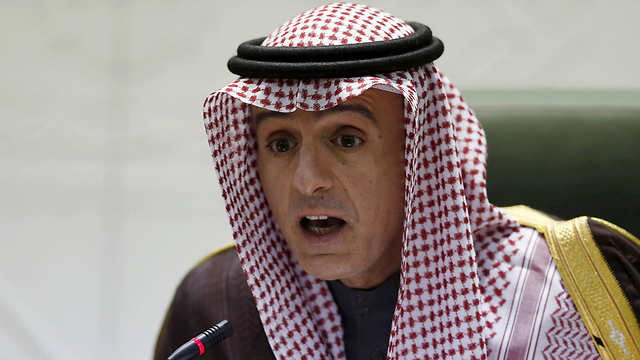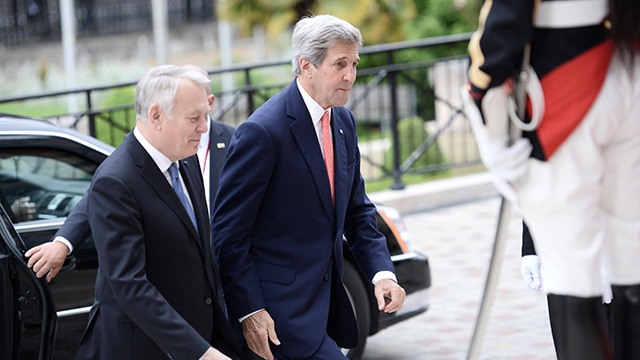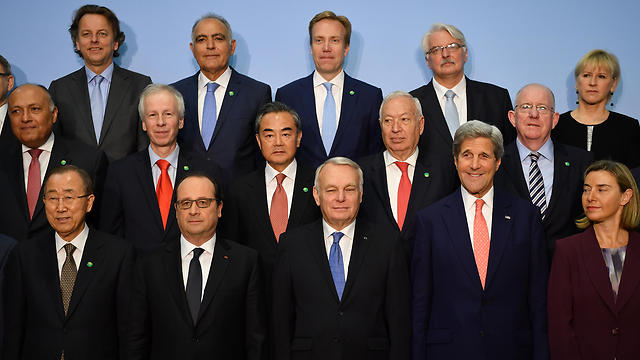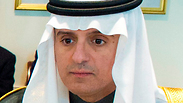
Saudi calls on Israel to accept 2002 Arab peace initiative
Netanyahu said earlier this week Israel was willing to consider initiative that would lead to normalization of ties between Jerusalem and Arab states if changes are made to it, as it calls for Israeli withdrawal from territories, including the Golan Heights.
"The Arab initiative from 2002 is the best proposal for the resolution of the Israeli-Palestinian conflict," said Adel al-Jubeir, the foreign minister of Saudi Arabia, which is considered one of the more pragmatic Arab nations.
The Arab peace initiative, also known as the "Saudi initiative," called on Israel in 2002 to withdraw from the Golan Heights, the Gaza Strip, the West Bank and East Jerusalem. It also called for an independent Palestinian state to be established with East Jerusalem as its capital and for a "just solution for the refugee issue." In return, all Arab states will normalize their relations with Israel and declare the end of their conflict with it.
Earlier this week, Prime Minister Benjamin Netanyahu said the Arab initiative was an option Israel was willing to consider, but only if changes are made to it.
"We're willing to negotiate with Arab states on the updating of the initiative so it reflects the dramatic changes that happened in our region since 2002, while still maintaining the agreed goal of two states for two peoples," Netanyahu said.
Al-Jubeir said that changes could be made to the initiative and called on Israel to declare it accepts the initiative, adding that "I hope wisdom prevails in Israel."
"The Arab peace initiative has all the elements for a final settlement. It is on the table and a solid basis for resolving this long-standing dispute. It provides Israel with a lot of incentives and it's incumbent on the Israelis to accept that," he added.
The Paris conference was attended by diplomats from all over the world, include foreign ministers from the European Union, US Secretary of State John Kerry, UN Secretary-General Ban Ki-moon, and representatives from Arab nations.
French Foreign Minister Jean-Marc Ayrault said the objective was to bring the two sides back to the negotiating table by the end of 2016.
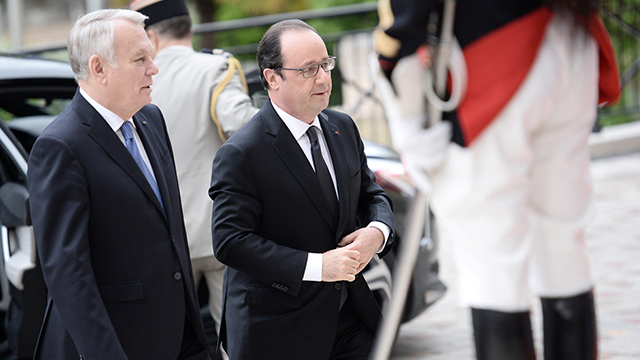
"The two-state solution is in serious danger. We are reaching a point of no return where this solution will not be possible," Ayrault told reporters following the conference.
Ayrault said the powers wanted work to begin by the end of June on a set of economic incentives and security guarantees to encourage the two sides to resurrect peace talks.
A final communiqué released after the conference said all countries present had reaffirmed the need for a negotiated two-state solution and that direct negotiations between the two sides should be based on existing UN Security Council resolutions.
It warned that the status quo - a lack of headway toward a Palestinian state - was not sustainable.
The French foreign minister called Abbas on Friday evening to give him an update on the conference. Ayrault, according to the official Palestinian news agency Wafa, told Abbas that the French envoy to the peace process will arrive in the region soon to promote the French initiative.
According to the Wafa report, Abbas told Ayrault that the Palestinian leadership is committed to the two-state solution and was willing to cooperate with the international community on the issue.
Meanwhile, Palestinian Foreign Minister Riyad al-Maliki claimed that "some countries interfered to ensure the Paris conference's final communiqué will not include clear positions on the peace process, not even a timetable."
He also criticized the fact the final communiqué did not include any mention of Israeli construction in the settlements, which he said threatened the two-state solution.
US Secretary of State John Kerry said the parties had discussed the possibility of convening an international conference by the end of this year, but that direct negotiations between Israelis and Palestinians would be the only way to achieve a solution.
"What today emphasized is we need to find some immediate kinds of steps on the ground that will make a difference," Kerry told reporters. "We need to work with the parties. Everybody agreed today that you can't impose a solution from outside."
The European Union's foreign policy chief, Federica Mogherini, said it was the duty of international and regional players to find a breakthrough since the two sides appeared incapable of doing so alone.
"The policy of settlement expansion and demolitions, violence, and incitement tells us very clearly that the perspective that (the 1993 Oslo Accords) opened up is seriously at risk of fading away," Mogherini told reporters.
She said the Middle East Quartet of the EU, Russia, United States and United Nations was finalizing recommendations on what should be done for the two sides to negotiate in good faith.
Israel, which opposed the French initiative from its conception, called the conference a "missed opportunity," arguing that instead of urging Palestinian President Mahmoud Abbas to immediately start direct negotiations with no preconditions with Prime Minister Benjamin Netanyahu, the international community has "given into Abbas's demands and is enabling him to avoid bilateral direct negotiations."
"The pages of history will mark this Paris conference as a conference which enables the Palestinians to toughen their position and push peace further away," Israel's Foreign Ministry said in a statement.
Chief Palestinian negotiator Saeb Erekat, meanwhile, said that "the Paris Meeting is a very significant step and its message is clear: If Israel is allowed to continue its colonization and Apartheid policies in Occupied Palestine, the future will be for more extremism and bloodshed rather than for coexistence and peace."
"What is required," he went on to say, "is a genuine mechanism to fully end the Israeli occupation that began in 1967 and to solve all final status issues based on international law; including a clear and limited timeframe for its implementation."
"We negotiated bilaterally with Israel, the occupying power, for over two decades, but they continue to violate all the agreements that we had signed. In fact the number of illegal Israeli settlers in Occupied Palestine has grown from nearly 200,000 to over 600,000 during the past 20 years of bilateral talks," Erekat added.
French president Francois Hollande, who opened the conference, said regional changes should be taken into the account when discussing the conditions for an Israeli-Palestinian resolution.
"The threats and priorities have changed. The changes make it even more urgent to find a solution to the conflict, and this regional upheaval creates new obligations for peace. We must prove it to the international community," he said.










